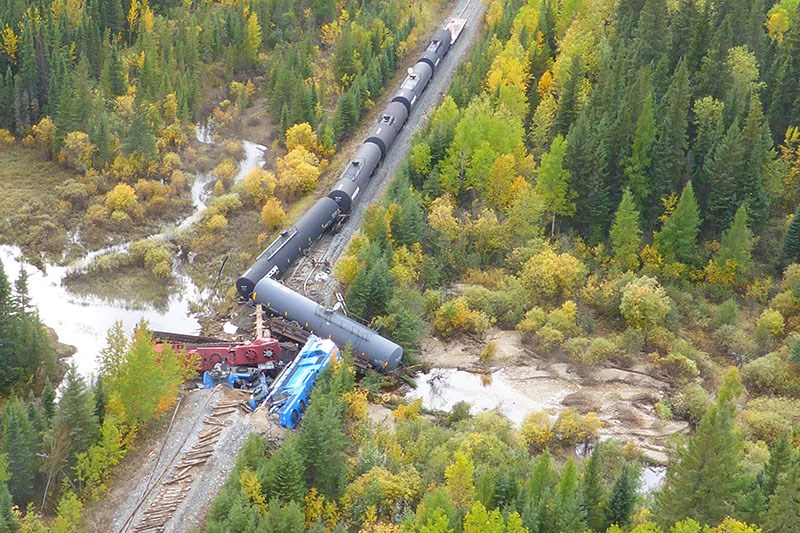The family of 38-year-old Kevin Anderson, the conductor who died in a Hudson Bay Railway freight train derailment near Ponton Sept. 15, wants an inquest into his death, which came hours after the crashed train was discovered because he couldn’t be extricated from the wreckage.
The derailed train was spotted around 5:30 p.m. by a helicopter flying overhead. Anderson died around 1 a.m. according to RCMP.
"That's a huge window of time for something to happen that would have saved his life and eased the suffering," Anderson’s mother Debbie Leeper told CTV News.
The train’s 59-year-old engineer also suffered life-changing injuries in the crash.
The province said in a statement that the remote location of the crash made the situation difficult for emergency responders, as did the fact that the train was carrying dangerous goods, including liquefied petroleum gas.
“Due to the level of entrapment, the 38-year-old patient could not be freed from the wreckage prior to him succumbing to his injuries,” the provincial statement said. “However every possible effort was made. Rescuers were however able to free the other 59-year-old patient and transport him safely to hospital.”
Thompson Fire & Emergency Services (TFES) personnel were en route to the staging area more than 150 kilometres away within six minutes of being notified of the accident around 6 p.m. Emergency responders, including a hazardous materials response team, made their way to the scene with assistance from Hudson Bay Hi-Rail.
RCMP at the scene had reported the smell of propane in the air, which meant that rescue efforts were delayed until the hazmat team determined it was safe. Inside the locomotive, the province said, diesel from ruptured fuel tanks had spilled, forcing first responders to work in a pool of fuel with power still running to the locomotives.
“Regardless of the risks, which included unstable engine wreckage overhead, the risk of the wreckage shifting further, and the risk of fire or explosion due to the leaking fuel, responders chose to enter the wreckage and made every effort to rescue the victims,” the province said, noting that 10 RCMP officers, paramedics and firefighters worked in the hot zone, where only those with the appropriate training or most critically needed skills were allowed.
In addition to TFES and RCMP, the Snow Lake Fire Department, Snow Lake EMS, the Wabowden Fire Department, Wabowden EMS, Manitoba Sustainable Development, the Northern Regional Health Authority medical supervisor from The Pas, Custom Helicopters, Stittco Energy, and Emergency Response Assistance Canada (ERAC) also assisted with the rescue efforts. Co-ordination was assisted by provincial authorities such as the Office of the Fire Commissioner and Medical Transportation Coordination Centre (MTCC).
“The emergency responders, and civilians who responded to this incident that evening did their very best, under extremely difficult and dangerous conditions,” the province’s statement said. “On behalf of all the emergency responders the province sends its condolences to the family of the deceased and wishes a full recovery to the surviving employee.”
The medical examiner’s office told CTV News that a determination of whether or not an inquest will be held probably won’t be made until 2019.




